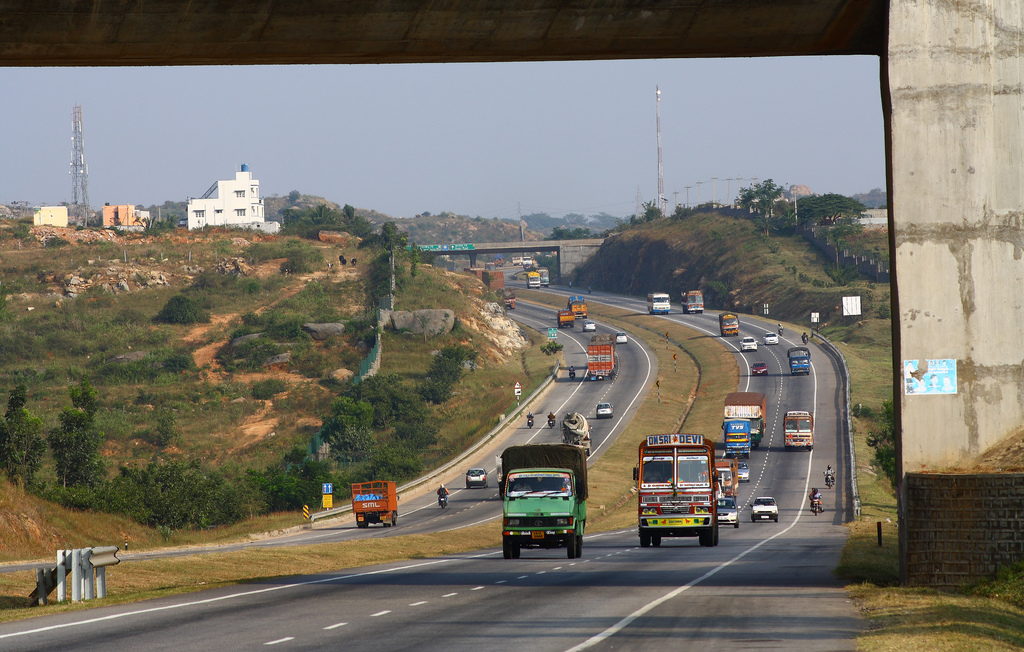Changing the way projects are given out, the National Highways Authority of India (NHAI) and its parent body, the Ministry of Road Transport and Highways (MoRTH), have opened doors for new bidders in the market. The infrastructure sector is pacing up with the arrival of Hybrid Annuity Model (HAM), and several smaller firms are benefitting from this.
Apart from the major players, such as Dilip Buildcon, IRB Infrastructure and Ashoka Buildcon, smaller firms, including J Kumar Infraprojects, Madhucon Projects, HG Infra and various joint ventures between Monte Carlo and PNC Infratech captured around 48 per cent of the total bids in the current fiscal year.
Articulating in detail about the Hybrid Annuity Model (HAM), multiple bidders have emerged under this wing. Introduced in 2016, the model offers developers 40 per cent of the project cost to the developer from the government in five installments, depending on the project’s progress. The remaining amount endured by the developer can be retrieved as annuity or toll.
The oncoming of HAM has opened doors for many small developers. The new projects are now being bagged by a mix of market heavyweights and smaller players in the arena. With the new policy of switching from Build Operate Transfer (BOT) to HAM, once completed, NHAI and MoRTH hand over the project to the developer under toll-operate-transfer (TOT) model.
In a recent bid under the same handout model, the Vadodara-Mumbai Expressway was bagged by five infrastructure developers. From major market players like Ircon International, Patel Infra, IRB Infrastructure to Ashoka Concessions and Sadbhav Engineering, the project has been divided for the first phase of its development. The project has been bagged by these five development companies for Rs 6,000 crore.
A total of Rs 2,043 crore has been invested by IRB Infrastructure’s wholly-owned subsidiary, VK 1 Expressway Pvt Ltd. The company’s concession agreement with the NHAI for the eight-lining of the Vadodara Kim Expressway is from 355 to 378.740 Km (Padra to Vadodara section of Vadodara Mumbai expressway). The development for IRB Infrastructure came after the company started bidding for HAM projects along with BOT.
The stretch for the initial phase of development is between Vadodara and Kim, located near Surat. The total cost of land acquisition on this stretch is Rs 4,000 crore, taking the overall project cost of the first phase to Rs 10,000 crore. The total project cost of the Mumbai-Vadodara expressway is expected to range from Rs 40,000-44,000 crore. The work on the project begins in June.
With an aim to create roadways that will enhance connectivity, NHAI, in association with companies like IRB Infrastructure, Ircon International and Patel Infra has been carving expressways that offer multiple benefits. These highways act as a path for community upkeep and offer multiple benefits to the dwellers in areas nearby.
For instance, the Vadodara-Mumbai Expressway, backed by major infrastructure companies, will give the residents of both the cities a new lifeline. The development in infrastructure is a direct result of the construction of expressways. Therefore, reshaping the landscape of both the cities.
Increased connectivity will allow people to travel faster. The eight-lane road will also be able to tackle large amounts of traffic. Also, the highway will increase prospects for people who are looking forward to buying property nearby.
Another major benefit that such projects offer is the availability of jobs. The coming up of Vadodara – Mumbai expressway and the settling down of new residents will bring in a lot of multinational companies to both the cities. This will eventually lead to the development of IT hubs and thus, increased job opportunities.
With all this, will come the tremendous investment potential. Projects like these only grow the investor’s ROI and thus, are a major development for both the cities. The efforts of NHAI, MoRTH, and respective infrastructure developers make projects like these a sustenance factor for the cities they connect.


India with a total road network of 5.5 mn, comprises of national & state highways and urban & rural roads. National Highways accounts for 2% of the total road network and carries over 40% of total traffic.
The company has emerged as a preferred bidder for a hybrid annuity project.